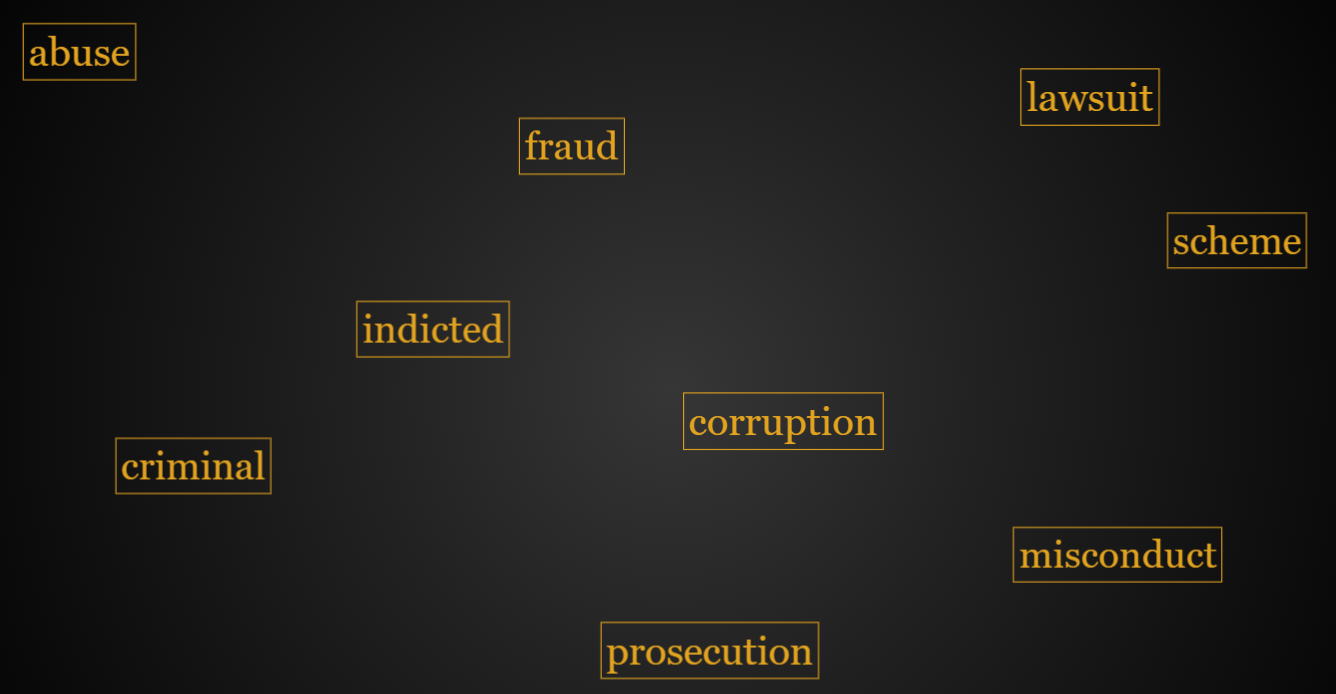Leaked files reveal reputation-management firm’s deceptive tacticsThey look at first glance like ordinary news outlets serving up headlines from around the world. The hundreds of websites, seemingly unconnected to one another, come in six languages and purport to cover far-flung cities such as Paris, London and Chicago.
But beneath the surface, the sites have something in common: They host frothy stories about clients of a little-known reputation-management company that promises to remake the online images of its customers.
The network of fake news sites is one part of a complex apparatus the Spain-based firm Eliminalia uses to manipulate online information on behalf of a global roster of clients, an investigation by The Washington Post and other media partners found. The firm employs elaborate, deceptive tactics to remove or drown out unflattering news stories and other content, the investigation revealed. Eliminalia had close to 1,500 clients over six years, including businesses, minor celebrities, and suspected or convicted criminals.Between 2015 and 2021, Eliminalia sent thousands of bogus copyright-infringement complaints to search engines and web hosting companies, falsely claiming that negative articles about its clients had previously been published elsewhere and stolen, and so should be removed or hidden, the company records show. The firm sent the legal notices under made-up company names, the examination found.Eliminalia also tried to make embarrassing information about its clients harder to find by burying it under false, flattering stories.
Those stories, published on the network of fake news sites, are designed to show up prominently in internet searches of the clients’ names, the review found.To accomplish this, the firm exploited a glitch in the websites of dozens of U.S. government agencies and universities, including Stanford University, to make the fake news sites appear more legitimate to search engine algorithms, the review revealed.Its U.S. clients included a popular reality-TV personality publicly accused of sexual misconduct and a California biotech entrepreneur who had been convicted of financial fraud and is now fighting charges he hired a hit man to kill a business associate. The leader of a major religious charity in Chicago that faced criticism over its executives’ salaries also turned to Eliminalia, the records show.Eliminalia did work for an Italian spyware company that had been fined for selling surveillance technology to Syria’s autocratic regime, and for a Swiss bank that had drawn public scrutiny over Venezuelan clients who were suspected of money laundering. It also worked on behalf of a well-known traveling circus clown who had been convicted of sexually assaulting a 14-year-old girl in Switzerland.A woman who answered the door at the Eliminalia office in January, after The Post and partner news organizations began contacting Eliminalia’s clients, told a reporter that the company had changed its name to iData Protection and that its new focus was data security. Three people were in the office.“We erase your past,” the tagline on its website pledges.
In the years after its creation, Eliminalia quickly expanded its footprint, with a hub in Kyiv, Ukraine, and offices in Miami; Milan; Manchester, England; Guayaquil, Ecuador; and a dozen other cities, according to its website.
The reputation-management industry grew in parallel, experts said. Although measuring the industry is difficult, dozens of firms with names such as Reputation Defense Network, Guaranteed Removals and Reputation Resolutions advertise online-content-removal services. Few provide details about their methods.“There are ethical reputation-management companies that try to use methods that are entirely on the up and up,” said Matt Cutts, formerly a top engineer at Google and administrator of the U.S. Digital Service, a unit of the executive branch that advises federal agencies on information technology. “It is also safe to say that there are many unethical companies.”
Such companies are often called “black hat” firms because they use deceptive or legally dubious tactics. Cutts and other experts said they would put Eliminalia in that group.
“They are clearly using black-hat techniques,” said Zach Edwards, a data privacy researcher who reviewed The Post’s findings. “It’s unethical and may even be illegal in some cases.”
The links to Eliminalia’s fake stories had another feature that experts said appeared designed to make search engines give prominence to the fake news outlets. They were crafted to piggyback on the URLs of legitimate websites, including those of Stanford University, NASA and the Federal Highway Administration.
The article goes on to detail how the reputation of a nasty money-laundering drug lord in Argentina got his reputation whitewashed after he hired Eliminalia. Before, a search of the criminal showed stories about drugs and money laundering. After Eliminalia has been on the job for a while, fake stories about the thug turned up fluffy propaganda like how he loved American football, what he thought about the personalities of Chihuahua dogs and his commentary on the tenets of philosophy. The thug, Hernan Gabriel Westmann, had been whitewashed into respectability on the internet.
And, this is not just about Eliminalia. An entire industry has popped up to make bad people and companies look good.
That’s just the world we live in. Truth has no value to elites. Could that be why elites and corporations deserve little or no trust about anything they say, or has the situation not deteriorated that far yet?


No comments:
Post a Comment